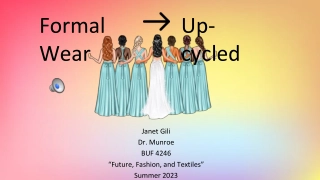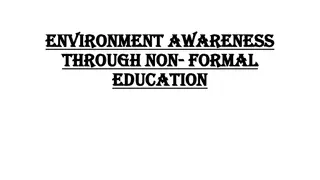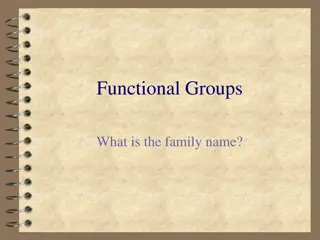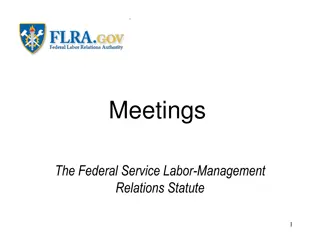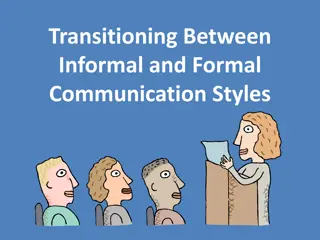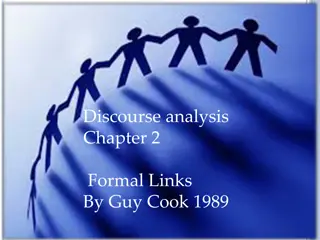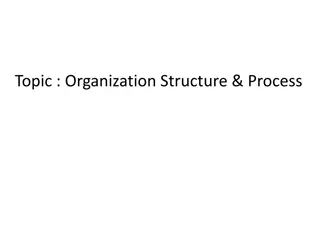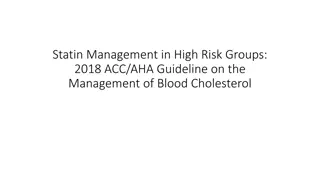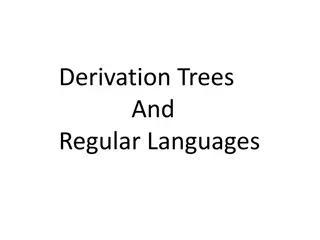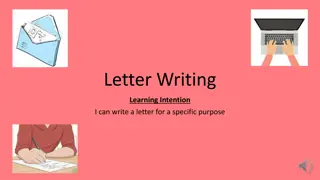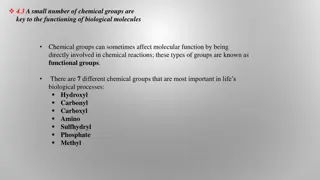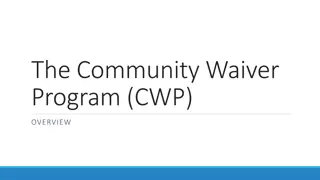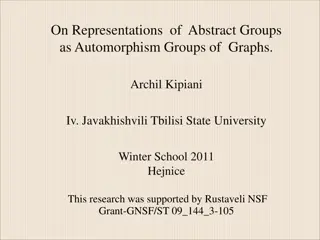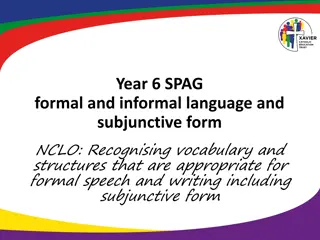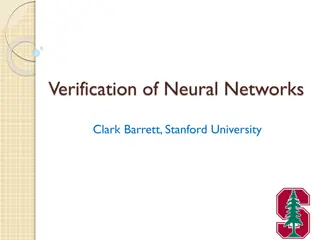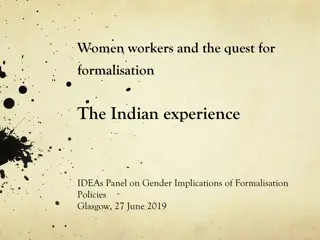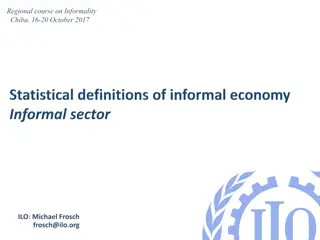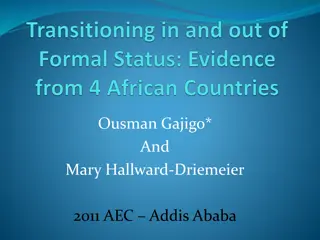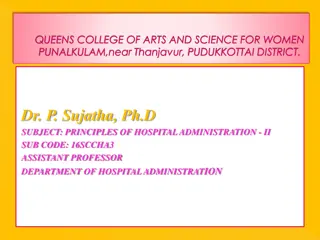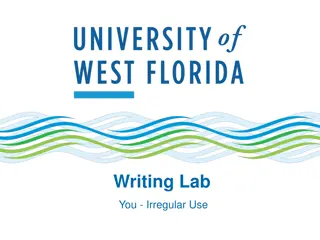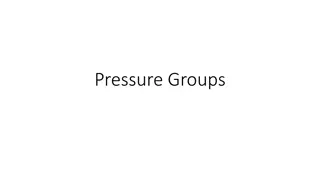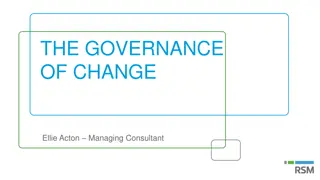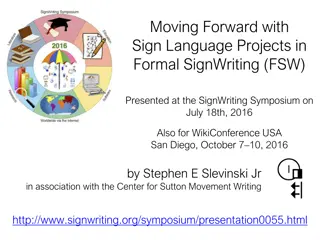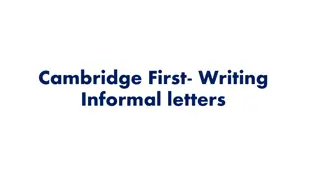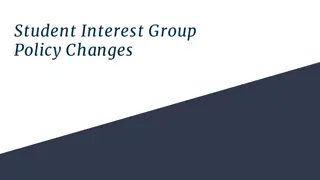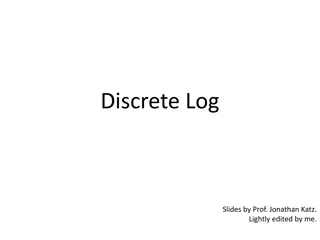Sustainable Fashion Solutions for Repurposing Formal Wear
Transforming formal wear from single-use items into sustainable fashion solutions is vital for reducing textile waste and environmental impact. This article explores the challenges of post-party formal dresses, the environmental consequences of textile waste, and innovative approaches to upcycling d
9 views • 14 slides
Types of groups and reactions
This information discusses electron-donating groups (EDGs) and electron-withdrawing groups (EWGs), their effects on molecule reactivity, examples of each group, nucleophiles, and electrophiles. EDGs increase electron density, making nucleophiles stronger, while EWGs decrease electron density, making
0 views • 14 slides
Mastering Formal Letter Writing in Education
Enhance your formal letter writing skills in education with a focus on job applications and key features of formal correspondence. Explore the purposes of writing letters and learn to choose the appropriate writing style for each type. Practice completing expressions for formal letters effectively.
5 views • 27 slides
Class Groups Are They the Future of Collaborative Learning
The traditional classroom setting, with rows of students facing a teacher at the front, has dominated education for centuries. However, the rise of technology and the evolving needs of the 21st century workforce are pushing the boundaries of learning. Enter Class Groups, a concept that reimagines th
4 views • 3 slides
Governance and Managerial Leadership of Formal Social Protection in Africa: Insights from Cameroon's National Social Insurance Fund (CNPS)
This presentation delves into the governance and managerial leadership of formal social protection in Africa, focusing on Cameroon's CNPS system. It discusses the institutional evolution of social protection, the challenges faced by bureaucratic and political stakeholders, and the roles of various s
0 views • 8 slides
Enhancing Environmental Awareness Through Non-Formal Education Initiatives
Non-formal education plays a crucial role in enhancing environmental awareness through programs such as eco-clubs, population education initiatives, and the National Green Corps. These initiatives aim to educate individuals, especially children, about environmental issues, leading to better decision
0 views • 7 slides
Understanding Functional Groups in Organic Chemistry
Functional groups in organic chemistry are specific groups of atoms within molecules that determine the chemical properties of the compound. This content provides visual representations and descriptions of various functional groups such as alkanes, alkenes, alcohols, aldehydes, acids, and esters. Le
0 views • 38 slides
Understanding Formality in Meetings under the Federal Service Labor-Management Relations Statute
The Federal Service Labor-Management Relations Statute provides guidelines for formal discussions and investigative examinations in the context of labor relations. It outlines the rights of unions to representation in formal meetings, emphasizing the importance of subject matter and formality. The d
0 views • 34 slides
Mastering Communication Styles: Informal vs. Formal
Explore the nuances of transitioning between informal and formal communication styles, understand the components of different forms of communication, and learn when to apply each style in appropriate situations. Delve into the characteristics and examples of informal and formal communication, and di
0 views • 18 slides
Understanding Discourse Analysis: Formal Links and Contextual Connections
Discourse analysis involves examining language beyond grammar rules, focusing on formal links within sentences and contextual connections outside of language. Guy Cook discusses how formal features shape discourse meaning and how verb forms influence sentence coherence. The use of parallelism in spe
3 views • 22 slides
Understanding Organization Structure and Process
Organization structure is the formal arrangement of relationships within a firm, important for achieving objectives efficiently. It involves elements like job differentiation, integration, authority systems, and flow of information. The formal and informal organizational structures play distinct rol
5 views • 62 slides
Understanding Formal and Informal Writing Styles: A Guide for Year 5 Students
Explore the concepts of formal and informal writing styles through engaging activities and examples in this educational resource tailored for Year 5 English students. Learn to distinguish between the two styles, understand the criteria for each, and practice transforming sentences from informal to f
1 views • 18 slides
Guideline for Statin Management in High-Risk Groups - 2018 ACC/AHA
This guideline outlines the management of blood cholesterol in high-risk groups according to the 2018 ACC/AHA recommendations. It discusses the overall approach, different statin management groups, justification for statin use in high-risk populations, high and moderate-intensity statin therapy, and
1 views • 14 slides
Understanding Derivation Trees and Regular Languages in Formal Language Theory
Derivation trees play a crucial role in formal language theory, aiding in visualizing the process of deriving strings from a formal grammar. The concept of leftmost and rightmost derivations, along with their respective tree representations, provide insights into how strings are generated using gram
1 views • 15 slides
Understanding Interest Groups in Texas
Explore the role and influence of interest groups in Texas politics, including theories, types of groups, activities, and the impact of lobbying. Learn about incentives for joining, the free rider problem, and the various benefits interest groups offer. Discover the different types of interest group
0 views • 15 slides
Learning to Write a Formal Letter of Complaint
Explore the process of writing a formal letter of complaint with the help of visual aids and an example scenario. Learn about the structure and key components of such letters, including addressing the issue, expressing concerns, and requesting resolution. Enhance your letter-writing skills by unders
2 views • 15 slides
Understanding the Role of Interest Groups in Politics
Interest groups are organizations with shared policy goals that influence the policy process. They differ from political parties as they focus on specific policies. Theories of interest group politics include pluralist, elite, and hyperpluralist perspectives. Hyperpluralism suggests that groups beco
0 views • 22 slides
Understanding Chemical Groups and Macromolecules in Biological Processes
In biological processes, certain chemical groups play crucial roles in molecular functions. These functional groups, including hydroxyl, carbonyl, carboxyl, amino, sulfhydryl, phosphate, and methyl, are essential for the structure and function of biological molecules. Additionally, macromolecules, s
0 views • 9 slides
Mastering Formal Letter Writing: Tips and Examples for Success
Explore the art of formal letter writing with this comprehensive presentation covering the fundamentals of planning, content, features, and layout. Learn how to address the audience, define the purpose, structure your letter effectively, and craft the right tone. Discover essential tips for opening
0 views • 22 slides
Overview of the Community Waiver Program (CWP) and Enrollment Groups
The Community Waiver Program (CWP) aims to support full participation in communities, preserve natural living arrangements, and reduce waiting lists by offering targeted services to different enrollment groups. The program includes three authorities: 1915(c) Waiver, 1915(i) State Plan Amendment, and
0 views • 58 slides
Representation of Abstract Groups through Graphs
Explore the representation of abstract groups as automorphism groups of graphs, touching on topics such as the existence of graphs whose automorphism groups are isomorphic to given abstract groups, the cardinality of connected graphs satisfying specific properties, and questions regarding the cardin
0 views • 16 slides
Understanding Formal Invitation Card Etiquette
Formal invitations play a significant role in conveying important event details and setting the tone for the occasion. They provide complete information including the occasion, names of hosts and invitees, date, time, venue, and more. The format of formal invitations follows specific guidelines, usi
0 views • 16 slides
Exploring Orto-Computing: Bridging the Gap Between Formal and Phenomenological Computing
Meaningful experiments suggest a transition from the formal, Turing-based approach to a structural-phenomenological one called Orto-Computing. This innovative concept integrates mind-matter interaction and non-formal functions within computational systems, offering potential solutions to complexity
0 views • 18 slides
Understanding Formal and Informal Language with Subjunctive Form
Explore the distinctions between formal and informal language, along with the appropriate usage of the subjunctive form. Learn how to enhance your writing by identifying key vocabulary and structures for formal speech and writing. Get insights on recognizing and utilizing formal language in various
0 views • 9 slides
Software Bugs and Formal Verification in Critical Systems
Software bugs have caused catastrophic events like radiation overdoses and rocket explosions, emphasizing the importance of formal verification in ensuring software correctness. Formal verification uses mathematical models to prove software correctness, offering higher assurance, especially in safet
1 views • 26 slides
Challenges and Policies in Formalising Women Workers in India
The Indian labor market faces significant challenges in formalizing women workers, with a noticeable decline in women's employment especially in rural areas. Despite recent policy attempts at formalization, such as the Unorganized Workers Social Security Act 2008 and the Maternity Benefits Act, wome
0 views • 19 slides
Formal Verification of Cyberphysical Systems and Future Certification Methods
Explore the formal verification techniques and tools used in cyberphysical systems, including KeYMaera verification tool, applications in distributed car control and adaptive cruise control, and the formal verification of ACC algorithms. The future work section highlights considerations for sensor d
0 views • 17 slides
Understanding the Transition to Formal Economy: Concepts and Recommendations
The concept of the informal economy, formal arrangements, and the distinction between informal sector and informal employment are explained in detail. Recommendations and resolutions from ILO concerning the transition from informal to formal economy, statistical guidelines, and definitions are highl
0 views • 26 slides
Determinants of Formality and Informality in African Firms
This research explores the factors influencing the formal registration of firms in African countries and the impact of transitioning between formal and informal sectors. It delves into the effects on firm performance, access to infrastructure and finance, tax revenue, and worker welfare. The study a
0 views • 20 slides
Understanding Group Behavior and Dynamics in Organizational Settings
Exploring the foundations of group behavior in organizations, this content delves into formal and informal group structures, types of groups, and specific examples like task groups. It highlights how groups come together, interact, and work towards common objectives within organizational contexts.
0 views • 35 slides
Effective Use of "You" in Writing: Informal vs. Formal Guidelines
Understanding the usage of the second-person pronoun "you" in writing is essential for clear communication. In informal settings, "you" is used broadly to address readers directly or as an indefinite pronoun. However, in formal writing, it's crucial to avoid potential reader bias by using alternativ
0 views • 4 slides
Understanding Pressure Groups and Their Influence on Decision-Making
Pressure groups are formed by like-minded individuals to influence decision-makers by drawing attention to specific issues, with the aim of impacting legislation and existing laws. People join pressure groups seeking to address particular issues more effectively than through mainstream politics. Whi
0 views • 25 slides
Understanding the Importance of Formal Governance in Project Management
Formal governance in project management is crucial for ensuring robust decision-making, optimizing project portfolios, improving relationships with stakeholders, minimizing risks, and maximizing benefits. By adopting a formal approach to governance, organizations can enhance project and program perf
0 views • 14 slides
Exploring Formal SignWriting in Sign Language Projects
Delve into the world of Formal SignWriting (FSW) as presented at the SignWriting Symposium in 2016 by Stephen E. Slevinski Jr. Discover how FSW, supported by the Center for Sutton Movement Writing, offers a formal language system for sign languages with stable standards and diverse implementations.
0 views • 29 slides
Guidelines for Writing Effective Formal Letters
Learn about the types of formal letters, elements of a successful letter, paragraph planning tips, and the style to use in formal letters. Understand how to structure letters of complaint effectively, including the importance of clarity, justification, and clear presentation of complaints and sugges
0 views • 15 slides
Understanding Average Case Analysis of Algorithms
Explore the average case performance of algorithms, focusing on topics like stable marriage, the coupon collector problem, and formal settings for random inputs. Learn about stable matching scenarios, formal notions, and examples illustrating the concepts. Discover the formal problem of matching pre
0 views • 29 slides
Comprehensive Overview of Peace Processes and the Role of Women and Girls
Peace processes involve a variety of formal and informal activities, with the participation of different actors such as international organizations, grassroots movements, and individuals. Formal peace processes include conflict prevention, peace-building, and disarmament, while informal activities e
0 views • 12 slides
Mastering the Art of Writing Informal and Formal Letters
Explore the nuances of writing informal and formal letters, covering various types of letters, essential components, stylistic differences, and examples of formal versus informal expressions. Learn how to craft engaging letters for different purposes with appropriate greetings, introductions, main b
0 views • 6 slides
Student Interest Group Policy Changes Overview
Student Interest Group Policy Changes involve implementing new criteria for student interest groups, setting membership requirements for preclinical and clinical years, consolidating existing groups, and establishing new interest groups. The policy includes guidelines on events, fundraisers, faculty
0 views • 9 slides
Understanding Cyclic Groups and Discrete Logarithms
Exploring the concepts of cyclic groups and discrete logarithms in group theory. This presentation covers the definition of generators, examples of cyclic groups, important theorems related to prime orders and cyclic groups, uniform sampling in cyclic groups, and the discrete logarithm problem. Exam
0 views • 14 slides
